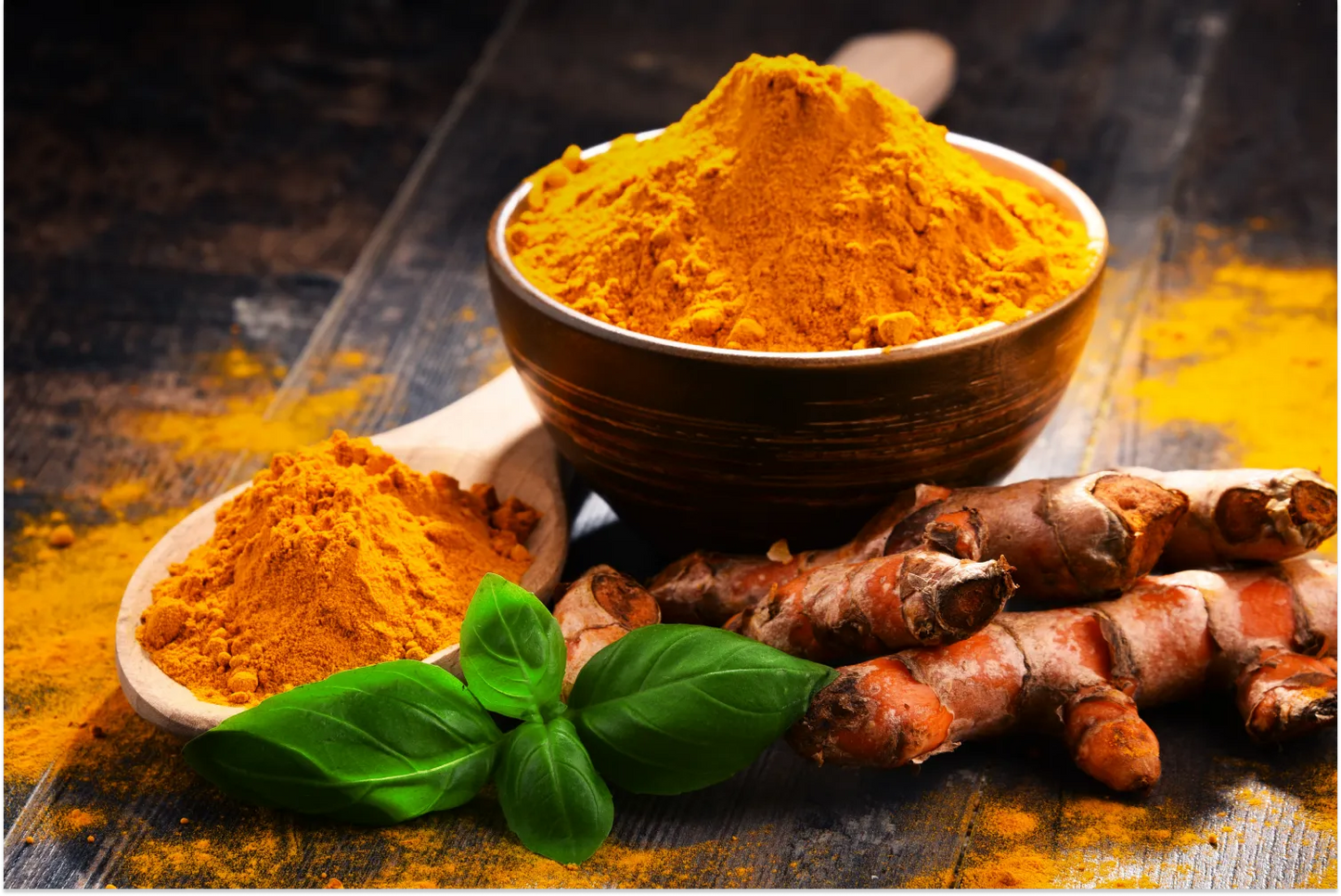
Let’s dive into the wonderful world of turmeric, an incredible golden spice that has been used for centuries in traditional healing practices. Join us as we explore what makes this vibrant root such a fantastic addition to our health stack.
What Is Turmeric and What Are Its Benefits?
Turmeric is a bright yellow spice that comes from the root of the Curcuma longa plant. It has a warm, slightly bitter taste and is often used to flavor or color curry powders, mustards, and other foods. But turmeric isn’t just delicious — it’s also packed with health benefits.
Heart Health
A healthy heart is the foundation of our overall well-being, and turmeric can be a valuable tool when it comes to supporting heart health. Its active compounds can encourage cardiovascular function, helping to maintain a balanced and healthy heart.
This is particularly helpful for those who like to go to the gym or get outside, since the heart plays such an important role during exercise. If you want to maintain your habits for the long haul, turmeric might just be the friend you can count on!
Digestive Comfort
If our digestive system is like an engine, then turmeric is like the lubricant that keeps it running smoothly. Turmeric helps maintain a comfortable digestive process, alleviating bloating and signs of indigestion and supporting our body in efficiently breaking down food and absorbing nutrients.
Brain Health
Turmeric can also help support cognitive function and overall brain health. Its active compounds can help maintain a sharp mind and clear thoughts even as we age, providing a solid foundation for the memories to come.
Antioxidant Profile
Turmeric’s antioxidant profile functions like a shield, defending our bodies against the harmful effects of free radicals. Free radicals are unstable molecules that can wreak widespread damage on our bodies if left unchecked and are often to blame for early signs of aging. However, antioxidants can help maintain cellular health and support our body’s natural defense mechanisms.
Skin Health
The benefits of turmeric extend to the very surface of our beings — our skin. This golden spice can support radiant, healthy skin by helping to maintain moisture and elasticity. Its antioxidant properties also assist in protecting our skin from environmental stressors like air pollution.
By incorporating this ancient root into our lives, we’re tapping into centuries of traditional wisdom, harnessing the power of nature to support our journey toward health and vitality.
What Is the Active Ingredient in Turmeric?
The magic of turmeric is primarily thanks to its active ingredient, curcumin, a natural antioxidant that packs a powerful punch. This vibrant compound is what gives turmeric its characteristic golden color and its ability to support various aspects of our health.
Curcumin is known for its strong soothing effects, making it a popular choice for those seeking natural ways to ease tension and support their health.
It’s important to note that while turmeric contains curcumin, the concentration you’d get from dietary turmeric is typically about three percent by weight. That’s why many people choose to supplement with concentrated curcumin extracts to harness its full potential.
How Long Does It Take for Turmeric To Work?
Everyone’s path to wellness is unique, and the same holds true for the time it takes for turmeric to work its magic. There are several factors that can affect how long it takes turmeric to work.
These include:
- Overall health: Your baseline health plays an important role. If your body is in a state of balance, you may notice the benefits sooner than if you have specific health challenges.
- Current diet: What you eat can enhance or inhibit the effects of curcumin. For instance, because curcumin can help soothe tension and irritation in the digestive system, eating foods that trigger digestive upset might cause you to miss out on the benefits of turmeric.
- Intake form: Turmeric comes in many forms, such as fresh root, powder, or supplements. The form you choose can affect how quickly your body can utilize its goodness.
- Quality of the supplement: If you opt for a supplement, remember that quality is key. Look for products that contain black pepper or other natural compounds that increase bioavailability.
- Dosage: The amount of turmeric or curcumin you take can also play a role in its effectiveness. Always follow the recommended dosage on the product label or consult a healthcare professional.
- Consistency of use: Just like with any other supplement or dietary change, it takes time for your body to adjust and for you to experience the full benefits.
Basically, the time it takes for turmeric to work is unique to each individual. Some may experience benefits within a few days, while others may need a few weeks or even months to fully reap the rewards.
The key is to be patient, consistent, and mindful of how your body responds. Remember, the journey to wellness is a marathon, not a sprint.
Can You Enhance the Absorption of Turmeric?
When it comes to turmeric, our bodies are actually not very efficient at absorbing curcumin. If we take it plain, chances are most of it will go right through our digestive tract without ever showing us its benefits. However, there are a few simple yet effective ways to enhance the absorption of this golden spice.
These include:
- Black pepper: This common kitchen ingredient contains piperine, a natural substance that significantly increases the absorption of curcumin. Just a little pinch of black pepper can work wonders!
- Combine with fats: Turmeric is fat-soluble, meaning it dissolves in fats, which then allows our bodies to absorb it more efficiently. So, consider combining turmeric with healthy fats like coconut oil, olive oil, or even avocados.
- Heat it up: Cooking with turmeric can increase its bioavailability, allowing our bodies to reap more of its benefits.
Are There Any Side Effects of Turmeric Consumption?
While turmeric is generally considered safe and can be a wonderful addition to a healthy lifestyle, consuming it in large quantities may lead to some side effects.
The majority of side effects are limited to digestive issues such as bloating and gas, especially for those with sensitive stomachs. However, an excessive amount of turmeric may increase the risk of bleeding, lower blood sugar levels, affect iron absorption, and even cause gallbladder issues.
It’s important to enjoy turmeric in moderation and consult with a healthcare professional if you have any concerns or are taking other medications. Always listen to your body and let it guide you on your wellness journey.
Introducing Our Fast Trask Bone Broth
Allow us to introduce you to our Fast Track Bone Broth, a culinary masterpiece that combines taste and nutrition in one delightful drink.
Our bone broth is meticulously crafted from the finest ingredients, providing you with a rich source of essential nutrients that support your health journey. While bone broth alone can have benefits such as supporting digestion, hydration, and more, adding turmeric to our recipe makes this broth a wellness wonder.
How To Incorporate Fast Track Bone Broth Into Your Daily Routine
Incorporating our Fast Track Bone Broth into your daily routine is as simple as it sounds.
You can heat up a cup of our bone broth and savor it as a soothing, comforting drink. You can also use our bone broth as a versatile base for soups and stews, adding nutrition and flavor to your favorite recipes. The possibilities are endless!
The Takeaway
Turmeric is a magnificent spice that offers many health benefits, from supporting our heart and brain to encouraging a radiant complexion. It’s important to keep in mind that the effects of turmeric won’t be instantaneous, so you’ll need some patience. However, we’ve also discussed a few ways you can support its absorption so you can cut a few digestive corners.
Whether you decide to enjoy turmeric root in your next dinner recipe or opt for our Fast Track Bone Broth, the benefits of turmeric are too good to be ignored. For more health tips and diet information, check out our blog.
Sources:
Protective Effects of Curcumin in Cardiovascular Diseases—Impact on Oxidative Stress and Mitochondria | PMC
An Overview of Curcumin in Neurological Disorders | PMC
Antioxidant Potential of Curcumin—A Meta-Analysis of Randomized Clinical Trials | PMC
Interaction between Gut Microbiota and Curcumin: A New Key of Understanding for the Health Effects of Curcumin | PMC
Potential of Curcumin in Skin Disorders | PMC
Curcumin: A Review of Its’ Effects on Human Health | PMC
Influence of Piperine on the Pharmacokinetics of Curcumin in Animals and Human Volunteers | NCBI Bookshelf
Turmeric | PubMed




